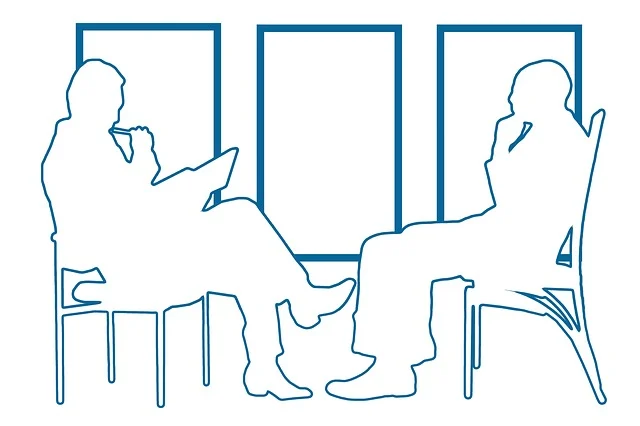As a researcher embarking on an oral history project, one of the most crucial steps is identifying potential interviewees. These individuals, with their firsthand knowledge and unique perspectives, will form the backbone of your research, providing the raw material from which you can weave together a compelling narrative of the past.
In this comprehensive guide, we will delve into the strategies and techniques for identifying potential interviewees for your oral history research. We will explore how to define your research focus, utilize existing resources, network with experts, leverage online platforms, and employ snowball sampling to uncover a diverse and representative group of individuals who can contribute to your project.
Let’s begin:
1. Define Your Research Focus

Before embarking on the search for interviewees, clearly define the scope of your research. What period or event are you investigating? What specific aspects or perspectives are you seeking to illuminate? A well-defined research focus will guide your search for individuals who possess relevant firsthand knowledge and experiences as well as provides direction, clarity, and purpose, ensuring that your interviews are focused, relevant, and contribute meaningfully to the broader understanding of history.
2. Tap into Existing Resources

Delve into existing oral history collections, archives, and databases. These repositories often house transcripts, audio recordings, and biographical information of individuals who have participated in oral history projects. Explore local historical societies, community centers, and cultural institutions for potential interviewees.
Harnessing the power of existing resources yields substantial advantages, such as:
Existing resources can help you identify people who have already been interviewed or who are interested in being interviewed. This can save you a lot of time and effort.
Existing resources can provide you with valuable information about your interviewees, such as their background, experiences, and perspectives. This can help you prepare for your interviews and get the most out of them.
Using existing resources can help you connect with a wider range of interviewees, including people from different backgrounds and experiences. This can help you to create a more representative and well-rounded oral history project.
By tapping into existing resources, you can save time, improve the quality of your research, and create a more representative oral history project.
3. Network with Experts and Community Leaders

Consult with experts, scholars, and community leaders who have knowledge of your research topic. They can provide valuable insights into individuals who have played significant roles in the events or periods you are investigating. Seek recommendations from individuals who have a deep understanding of the community and its history.
4. Utilize Social Media and Online Platforms

Leverage the power of social media and online platforms to connect with potential interviewees. Join relevant online communities, forums, and groups dedicated to your research topic. Engage with individuals who share their personal experiences or insights related to your research area.
5. Conduct Snowball Sampling

Start with a few key interviewees and ask them to refer you to other individuals who might have valuable contributions to your research. This method, known as snowball sampling, can help you identify a network of potential interviewees who share similar experiences or perspectives.
To read more on the snowballing sampling technique, kindly check out our blog on The Art of Snowball Sampling in Oral History Research.
6. Consider Diversity and Representativeness

Strive to include a diverse range of individuals in your oral history project. Seek out interviewees who represent different backgrounds, perspectives, and experiences to ensure a well-rounded and representative portrayal of the events or periods you are investigating.
7. Prioritize Availability and Willingness

When identifying potential interviewees, consider their availability and willingness to participate in your research. Reach out to individuals who have time to commit to an interview and are genuinely interested in sharing their experiences.
8. Respect Sensitivity and Confidentiality

Be mindful of potential sensitivities and confidentiality concerns when approaching potential interviewees. Explain the purpose of your research and obtain informed consent before proceeding with an interview. Assure interviewees that their personal information will be handled with care and respect.
9. Build Rapport and Establish Trust

Take the time to build rapport and establish trust with your interviewees. Engage them in conversations, show genuine interest in their experiences, and actively listen to their stories. Creating a comfortable and respectful atmosphere will encourage open and honest dialogue.
10. Express Gratitude and Acknowledge Contributions

Express your sincere gratitude to your interviewees for their willingness to share their time and insights. Acknowledge the value of their contributions to your research and provide them with copies of the transcripts or recordings of their interviews. This fosters a sense of trust and rapport, making individuals more likely to recommend others who might be interested in participating in your oral history project.
Here are some specific ways to express gratitude and acknowledge contributions in oral history research:
- Thank interviewees verbally during and after the interview.
- Send handwritten thank-you notes or emails.
- Provide interviewees with copies of their transcripts or recordings.
- Acknowledge their contributions in the oral history project’s final product, such as a book, article, or website.
- Invite interviewees to participate in presentations or events related to the oral history project.
Conclusion

As you embark on the journey of oral history research, remember that identifying potential interviewees is not just about ticking off a checklist; it’s about seeking out individuals whose unique perspectives and experiences can illuminate the past. By employing a combination of the above strategies, you can uncover a rich tapestry of voices waiting to be heard.
Approach each interview with an open mind, a willingness to listen, and a genuine appreciation for the stories being shared. Treat each interviewee with respect and gratitude, acknowledging the value of their contributions. By doing so, you not only enrich your research project but also honor the individuals who have graciously shared their personal histories, preserving the voices of the past for generations to come.
